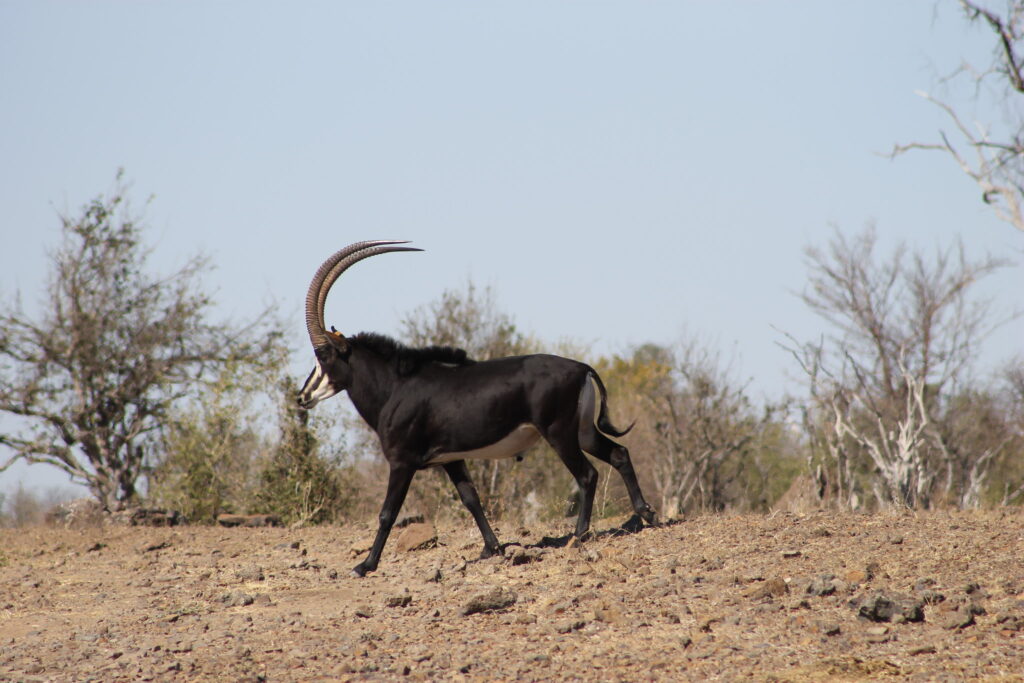This article was originally published in the Washington Examiner.
Conservationists, the financial sector, and the intelligence community rarely find opportunities to concur, but all agree the world’s continuing loss of wildlands and biodiversity poses systemic risks to our economy and national security. To mitigate this risk, a growing movement of governments and civil society is working to conserve 30% of Earth’s lands and waters by 2030, a campaign known as “30 by 30.”
To restore America’s position as a global leader on the environment, President Joe Biden has embraced the 30 by 30 ambition with his America the Beautiful Initiative, a plan to expand the role of America’s communities and private landowners in conservation efforts.
However, global environmental leadership requires more than ambitious domestic policies. Leadership also requires America to support partners abroad in achieving the 30 by 30 and other conservation goals, or at least not get in their way. Unfortunately, in this regard, the United States is moving in the wrong direction.
A measure in the Department of Interior appropriations bill making its way through Congress would undermine the conservation programs of several African nations by imposing arbitrary bans on the importation of hunting trophies legally acquired in Tanzania, Zambia, and Zimbabwe. Because these countries are significantly reliant on revenue from American hunters to fund conservation efforts, Congress risks stripping more than 94 million acres of conserved lands of their primary source of funding. In the process, it will pull the rug out from underneath decades of conservation work and undermine the world’s 30 by 30 ambitions.
Like in the U.S., many African nations rely on the sale of hunting permits to fund habitat protection, scientific research, anti-poaching programs, and other conservation efforts. The Tanzania Wildlife Authority, which oversees 40 million acres of conservation areas, receives 60% of its revenue from trophy hunting-related income. In Zambia, the Wildlife Authority depends on trophy hunting for 45% of the funding it uses to care for and manage 30 million acres of conserved lands. The Zimbabwe Parks and Wildlife Management Authority, responsible for 12 million acres of conservation lands, receives as much as 60% of its budget from trophy hunting fees.
This approach to conservation finance, modeled on the U.S. example, has allowed Tanzania, Zambia, and Zimbabwe to conserve between 27% and 38% of their landmass. While the U.S. is still striving to achieve the 30 by 30 goal, with only 12% of our landmass conserved, all three African countries are closing in or have already exceeded it. Imposing bans on the importation of hunting trophies from these countries like Congress is considering would likely jeopardize these success stories and position the U.S. as subversive rather than a global conservation leader.
What would it look like if trophy hunting were to stop and hunting revenues were taken away? The picture is grim. Researchers with the University of Pretoria in South Africa have calculated that if just the trophy hunting of lions were to end, more than 47 million acres in Tanzania, Zambia, and Zimbabwe might lose their economic viability as conservation areas. Should the trophy hunting of all species substantially decline, a result the measure being considered by Congress would likely produce, the negative affects on conservation areas will be far more devastating and widespread in these countries.
Is photo tourism a possible alternative funding mechanism? No. While photo tourism is a powerful driver for conservation in some places, it is not a turnkey replacement for trophy hunting. Photo tourism’s potential to fund conservation crashes when confronted with areas that are too remote, too hot, too dry, and too dangerous to welcome the typical tourist but nonetheless provide important wildlife habitats and the kind of wilderness experience hunters seek.
The limited potential of photo tourism is illustrated in Zimbabwe’s communal wildlife areas, where photo tourism generates roughly half of the revenue that trophy hunting does. With conservation financing in such short supply as it is, eliminating revenues provided by trophy hunting, especially when no viable alternative is available, would set the stage for ecological disaster.
Like all industries, Africa’s trophy hunting trade is not without its challenges, and it is an emotive subject for many. However, the benefits of maintaining that trade outweigh the costs when our world faces increasing risks stemming from the degradation of ecosystems. From America to Africa, the funds provided by hunting contribute to supporting the habitat conservation efforts necessary to reduce those risks.
To restore America’s position as a global conservation leader, Congress should recognize the achievements of African countries that have followed our example of conservation financing and avoid undermining them by adopting arbitrary bans on the importation of hunting trophies.






